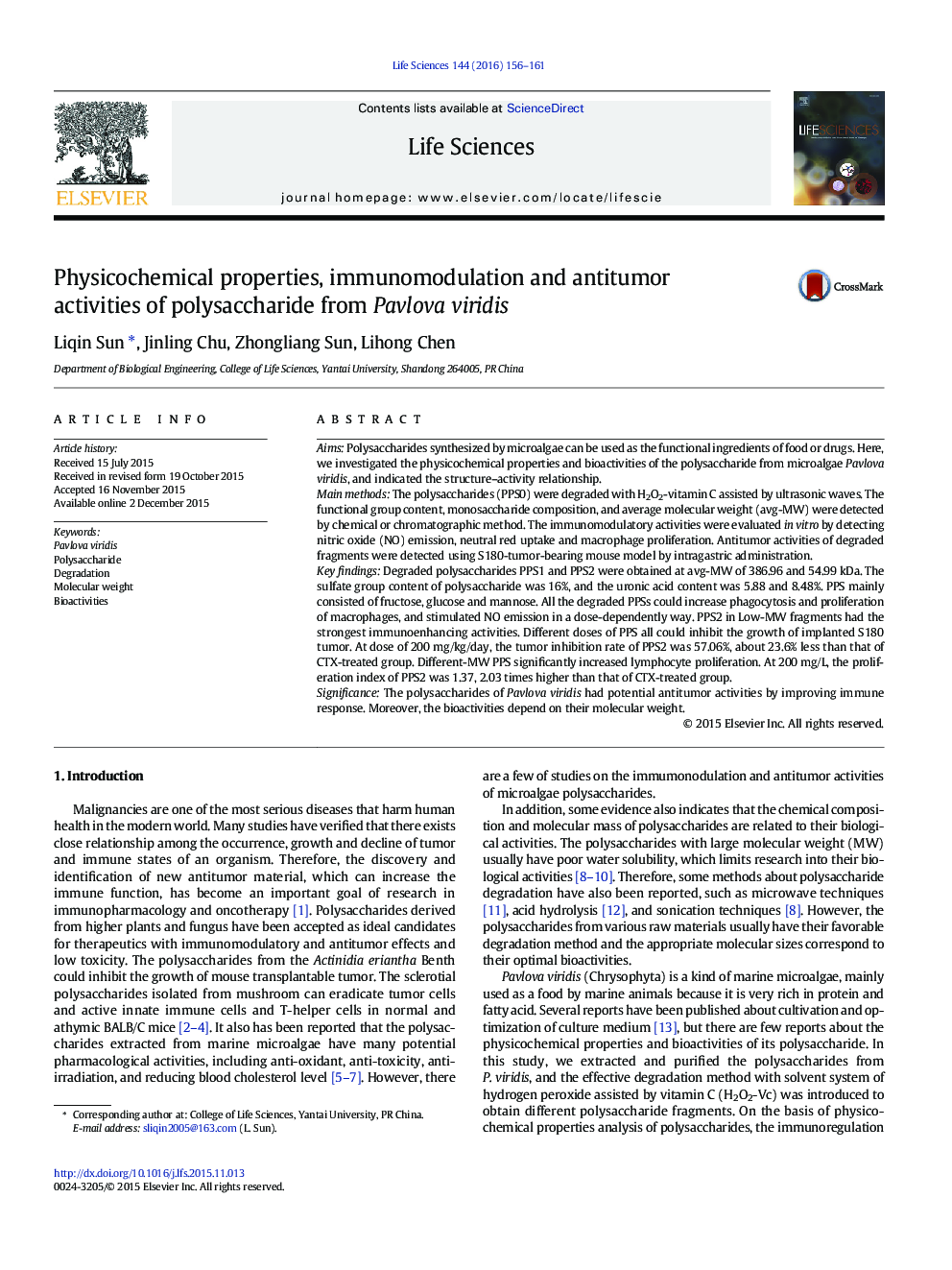| کد مقاله | کد نشریه | سال انتشار | مقاله انگلیسی | نسخه تمام متن |
|---|---|---|---|---|
| 2550620 | 1560584 | 2016 | 6 صفحه PDF | دانلود رایگان |

• The Physicochemical properties of P. viridis polysaccharide were clarified firstly in this study.
• The degradation method of hydrogen peroxide – vitamin C assisted ultrasonic waves was used to obtain the low-MW fragments.
• The immunomodulation and antitumor activities, and the structure-activity relationship of polysaccharides were indicated.
AimsPolysaccharides synthesized by microalgae can be used as the functional ingredients of food or drugs. Here, we investigated the physicochemical properties and bioactivities of the polysaccharide from microalgae Pavlova viridis, and indicated the structure–activity relationship.Main methodsThe polysaccharides (PPS0) were degraded with H2O2-vitamin C assisted by ultrasonic waves. The functional group content, monosaccharide composition, and average molecular weight (avg-MW) were detected by chemical or chromatographic method. The immunomodulatory activities were evaluated in vitro by detecting nitric oxide (NO) emission, neutral red uptake and macrophage proliferation. Antitumor activities of degraded fragments were detected using S180-tumor-bearing mouse model by intragastric administration.Key findingsDegraded polysaccharides PPS1 and PPS2 were obtained at avg-MW of 386.96 and 54.99 kDa. The sulfate group content of polysaccharide was 16%, and the uronic acid content was 5.88 and 8.48%. PPS mainly consisted of fructose, glucose and mannose. All the degraded PPSs could increase phagocytosis and proliferation of macrophages, and stimulated NO emission in a dose-dependently way. PPS2 in Low-MW fragments had the strongest immunoenhancing activities. Different doses of PPS all could inhibit the growth of implanted S180 tumor. At dose of 200 mg/kg/day, the tumor inhibition rate of PPS2 was 57.06%, about 23.6% less than that of CTX-treated group. Different-MW PPS significantly increased lymphocyte proliferation. At 200 mg/L, the proliferation index of PPS2 was 1.37, 2.03 times higher than that of CTX-treated group.SignificanceThe polysaccharides of Pavlova viridis had potential antitumor activities by improving immune response. Moreover, the bioactivities depend on their molecular weight.
Journal: Life Sciences - Volume 144, 1 January 2016, Pages 156–161